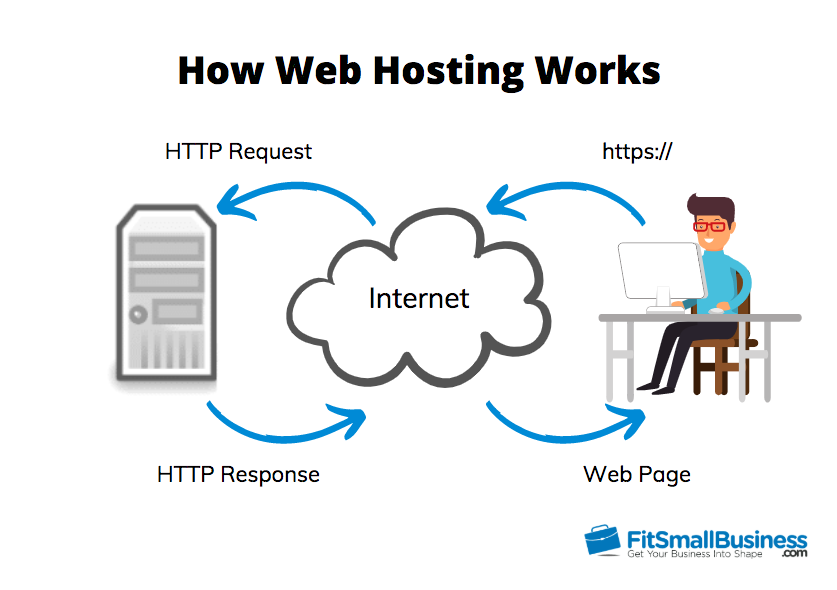Today’s digital landscape, wherever rapid innovation and online presence are essential for achievement, businesses of various sizes are increasingly turning to cloud-based hosting services. The transition from conventional hosting solutions to more adaptive and expandable cloud options is more than a trend; it’s becoming a necessity. Companies are recognizing that cloud hosting offers unique advantages that can enhance their operational efficiency, improve reliability, and ultimately lead to higher customer satisfaction.
The benefit of web hosting cloud services goes beyond fundamental storage and data management. With the ability to access resources on-demand, businesses can scale their operations seamlessly and respond to unexpected traffic spikes without disruption. Additionally, cloud hosting provides enhanced security measures, automated backups, and affordable solutions that make it an attractive choice for companies looking to innovate and grow in a competitive marketplace. Embracing cloud hosting is more than about keeping up; it's about leveraging the power of technology to drive business success.
Financial Efficiency and Scalability

Cloud-based hosting offer businesses with a budget-friendly solution by eliminating the need for expensive hardware investments. Instead of managing on- web hosting uae , companies can take advantage of cloud resources, paying only for what they use. This model allows businesses to allocate funds to other essential areas, enhancing overall efficiency. As a result, organizations can reduce operational costs and boost their financial health.
Scalability is another significant perk of cloud hosting. As businesses develop, their web hosting requirements may change. With cloud services, companies can smoothly scale their resources up/down based on current demands. This flexibility ensures that businesses are not spending on unused capacity, allowing them to adapt quickly to market shifts or increases in traffic without the hurdles associated with traditional hosting solutions.
Additionally, the scalability of cloud services allows for further advancement. Businesses can try out new projects or services without the concern of over-investing in infrastructure. With the ability to rapidly roll out additional resources, companies can assess innovations and address opportunities in the moment. This flexibility not only promotes growth but also encourages a culture of progress, essential for staying competitive in the modern fast-paced market.
Enhanced Protection Features
One of the main reasons businesses are moving to virtual hosting services is the improved security capabilities they offer. In comparison to legacy hosting, cloud hosting provides multiple layers of security that protect sensitive data from possible breaches. Data is often held across multiple servers, which means that even if one server is breached, the rest can still ensure your information secure. This decentralized nature of cloud hosting adds a significant security edge, ensuring that business data remains secure.
Additionally, cloud hosting services often come with enhanced security measures and regulatory standards. Providers allocate resources heavily in security measures such as data encryption, firewalls, and threat detection systems. These measures work together to protect your business from cyber threats. Regular updates and security patches are also a typical part of cloud hosting solutions, ensuring that any flaws are fixed swiftly, further enhancing your overall security standing.
Moreover, with cloud hosting, companies benefit from expert management and supervision of protection measures. Providers typically have specialized teams that focus solely on security, offering companies confidence. This level of skill is not always practical for smaller businesses to maintain internally. By leveraging cloud hosting solutions, companies can ensure that their data is not only secured by advanced technology but also administered by professionals who are skilled to handle the dynamic landscape of online security threats.
Improved Performance and Reliability
Cloud hosting services significantly enhance efficiency by allocating resources across multiple servers. This means that even traffic spikes, your website can seamlessly handle higher demand without slowing down down. Unlike conventional hosting where a lone server can become a hindrance, cloud hosting allows for instant scalability. Companies can adjust their resources instantly based on present needs, ensuring that their website runs fluently at all hours.
Dependability is another critical advantage of cloud hosting. With data kept across diverse locations and servers, the threat of service interruption is minimized. If any server experiences an issue, alternative servers can instantly take over, providing a redundancy mechanism that ensures website availability. This level of backup is difficult to achieve with standard web hosting solutions, making cloud hosting a more trustworthy option for maintaining a stable online presence.
Moreover, cloud hosting services often come with solid backup and recovery solutions, which strengthen overall reliability. Regular backups and rapid restoration processes mean that companies can recover from sudden data loss without significant disruptions. This peace of mind is invaluable, as it allows firms to focus on growth and innovation rather than worrying about possible outages or data integrity issues.
